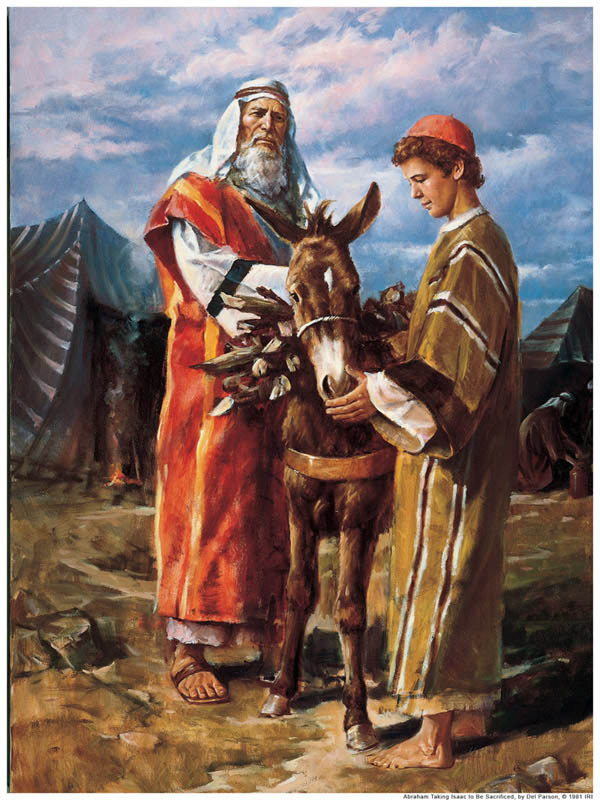Mormons discontinued the practice of polygamy more than one hundred years ago. Today, any Mormons (a nickname for members of The Church of Jesus Christ of Latter-day Saints) who enter into polygamy are excommunicated. Modern polygamist groups are not part of the Church and the Church has no control over them, any more than the Catholics can control the Protestants.
Polygamy was a Biblical practice. While monogamy is always God’s standard, there are times when he permits or even requires polygamy in order to accomplish His goals. We often see in the Bible that certain commandments are given exceptions when necessary—for instance, we are not to kill and yet there are times when God has permitted or instructed good people to kill. What God commands is always right.
 In Biblical times, even prophets were sometimes permitted or commanded to practice polygamy. It was certainly not sinful if God allowed these good men to continue to serve Him in the role of a prophet. The Bible gives specific instructions to those who are in these types of marriages on how to properly treat their spouses, demonstrating acceptance under certain circumstances. (See Deuteronomy 21:15-17 and Exodus 21:10-11.)
In Biblical times, even prophets were sometimes permitted or commanded to practice polygamy. It was certainly not sinful if God allowed these good men to continue to serve Him in the role of a prophet. The Bible gives specific instructions to those who are in these types of marriages on how to properly treat their spouses, demonstrating acceptance under certain circumstances. (See Deuteronomy 21:15-17 and Exodus 21:10-11.)
Polygamy as practiced by the early Mormons was different than the polygamy we often see today in high profile groups. It was a minority practice, with only about a third of the women practicing and most women were previously married—widowed or divorced. In its time, these women had few legal rights or protections and many were far from male relatives who could protect them or provide for their temporal well-being. Most families had only two wives.
Contrary to most situations involving women in the 1800s, Mormon women had a great deal of power in the marriage situation. In many families, it was the woman who initially prayed and then requested that her husband practice polygamy. Before a man took on an additional wife, his first wife had to give him permission and approve his choice. She had the right to approve each additional marriage as well. The women the men wanted to marry also had to give permission. While family members might coax, the woman always had the final say. If a woman entered into polygamy and then realized it was too much for her to handle, Brigham Young freely granted divorces to the women, although he tended to tell men who requested it that they needed to work harder at their marriages. This has its basis in Biblical polygamy. It was Sarah who gave her handmaiden to her husband when she thought she could not have children. When she realized she couldn’t cope with it, God told Abraham to obey Sarah’s wishes in the matter.
Interestingly, many Mormon women felt it gave them far more freedom than traditionally married women. In a time when women had few options, women in polygamist families often had far greater freedom. If one wife was willing to care for all the children, the other wife was free to return to school or take employment. Many women trained in nursing and some even became doctors. One became a politician. Many traveled East to work for suffrage—not, as some thought, to escape polygamy (since polygamy was their choice) but to get the right to vote. Brigham Young told women there was no reason they couldn’t do traditionally male jobs if they wanted to and he encouraged them to ignore gender boundaries in choosing careers. The women had financial support without the everyday demands of marriage—and for more independent women, that was a benefit.
In the early days of the Church, married men often went on missions alone. Women in polygamist marriages had support for the financial challenges of supporting their families and help with the children and chores. Having an additional woman in the house made these long missionary journeys, sometimes lasting years, much easier.
Eventually, persecution became so intense it made Utah nearly unlivable. The government even confiscated property. The prophet prayed and was shown what would happen to the church if it were not ended. It must be remembered that God knows all things. He knew how long polygamy would need to exist in order to achieve its goals. He knew when it would become unmanageable and have to end. It fulfilled specific needs for its time but those needs are no longer in place, just as the needs existed only periodically in Biblical times. One reason God has prophets is so He can institute or stop practices based on specific needs of the time. We don’t all have to build arks, for instance, but when we do, we need God to let us know.
Polygamy was never mandatory for everyday Mormons and is not a requirement to enter into Heaven. It was simply a part of life for a small number of willing people.
